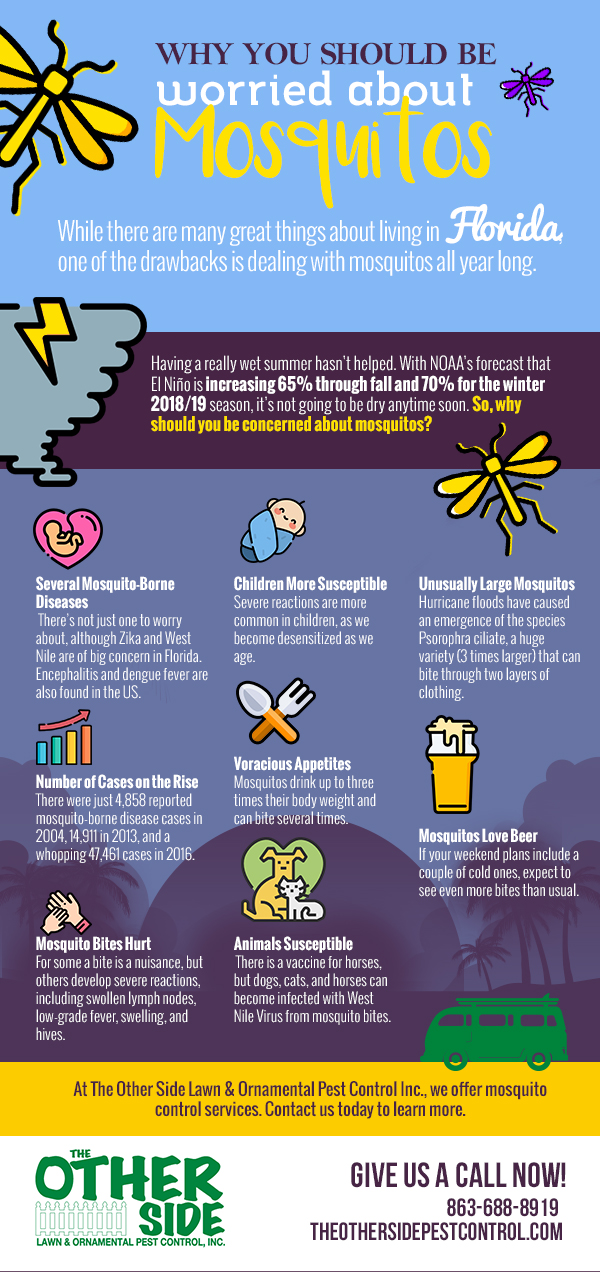The Function Of Pest Control In Food Safety And Hygiene
The Function Of Pest Control In Food Safety And Hygiene
Blog Article
click here to investigate -Franklin Malmberg
Are you familiar with the covert dangers that bugs position to the safety and health of your food? From rodents to pests, these undesirable visitors can pollute your ingredients, surface areas, and storage space areas.
This write-up explores the crucial function of insect control in preserving the highest requirements of food security and health. Discover effective approaches and avoidance steps that will help you secure your organization, customers, and credibility.
Don't allow insects jeopardize the high quality of your food.
The Influence of Parasites on Food Safety And Security and Hygiene
In your kitchen, pests can have a significant impact on food safety and hygiene. These undesirable visitors, such as rodents, insects, and cockroaches, can contaminate your food, surfaces, and tools with hazardous germs, infections, and parasites. Safety guidelines can conveniently access your kitchen, cupboards, and also your refrigerator, leaving droppings, urine, and hair.
Not just can they spoil your food by chewing through packaging, yet they can likewise spread diseases like Salmonella, E.coli, and Listeria. Picture preparing a dish for your household, uninformed that the active ingredients you're utilizing are currently contaminated.
It's important to take instant activity to stop and manage pests in your cooking area. Routine cleaning, proper food storage space, and professional parasite control measures are vital to guarantee food safety and security and maintain a hygienic atmosphere in your kitchen area.
Efficient Parasite Control Methods for the Food Sector
Executing reliable insect control methods is crucial for keeping food security and health in the food industry. By implementing these methods, you can avoid parasites from polluting the food and ensure that your products are secure for intake.
One effective strategy is to frequently check and monitor your facility for indications of bug task. This includes monitoring for droppings, nests, or any type of damages triggered by parasites.
It's additionally vital to seal all entrance indicate prevent bugs from getting in the facility. Routine cleaning and hygiene are important, as parasites are attracted to food residue and spills.
In addition, correct waste administration is critical to stop the buildup of food waste that can attract bugs.
Maintaining Hygiene Standards Through Insect Avoidance Steps
To maintain hygiene criteria, you have to on a regular basis apply parasite avoidance procedures. By taking proactive actions to stop insects from entering your food facility, you can make sure the safety and security and tidiness of your properties. Here are some effective bug prevention procedures to consider:
- Seal all fractures and holes: Bugs can go into with also the smallest openings. Regularly check and secure any kind of gaps in doors, home windows, walls, and floorings to maintain bugs out.
- Appropriate waste management: Take care of food waste without delay and firmly in secured containers. This will certainly lessen the destination of parasites and avoid invasions.
- Normal cleansing and sterilizing: Keeping sanitation in your establishment is important. Frequently clean and sterilize all areas, paying unique attention to locations where parasites might hide or breed.
- Execute a surveillance system: Regularly examine your premises for indications of pest activity. Set up insect surveillance gadgets, such as catches or sensing units, to identify and attend to any prospective issues early on.
Conclusion
So remember, when it pertains to food safety and hygiene, insect control plays a vital role.
By applying effective parasite control techniques and safety nets, we can guarantee the highest requirements of cleanliness and security in the food market.
Environmental sanitation let bugs jeopardize the quality of our food; allow's stand together and protect our health and wellness and health.
